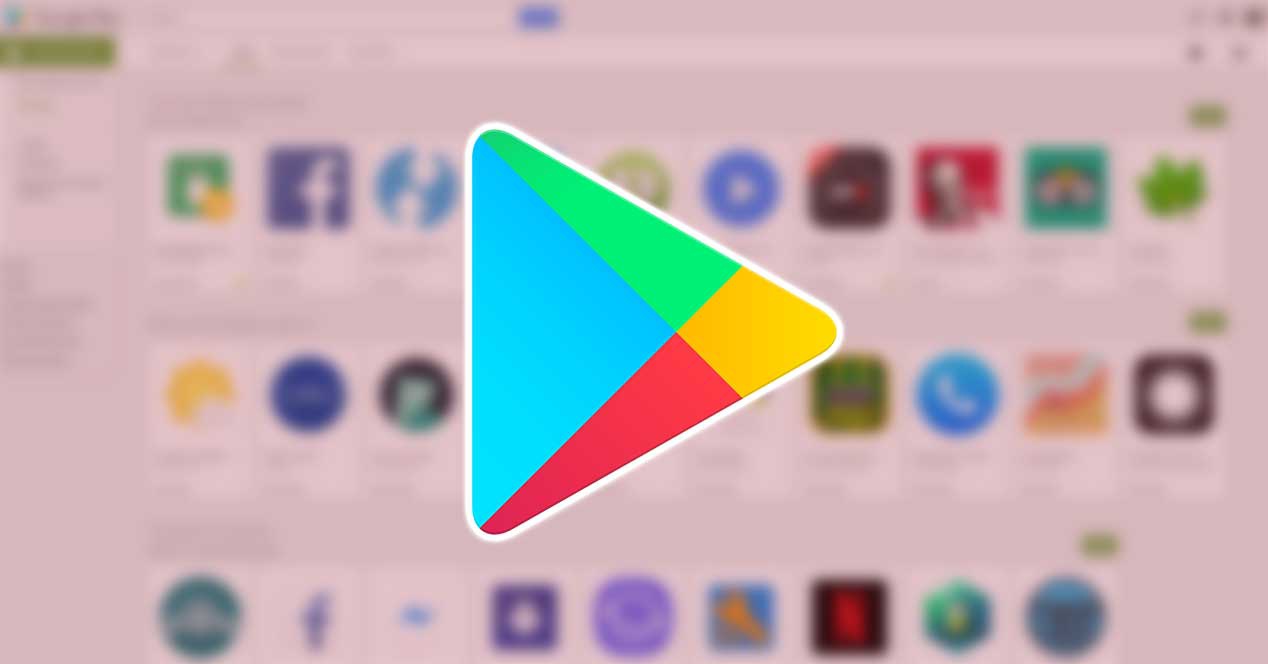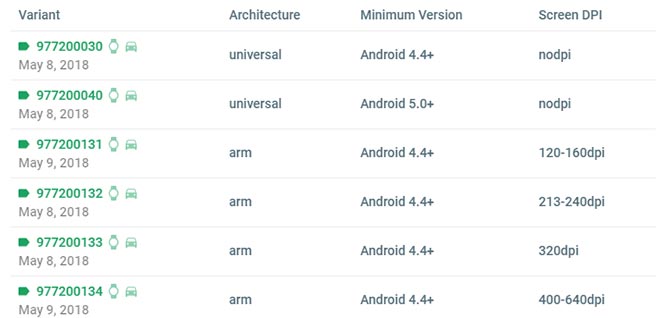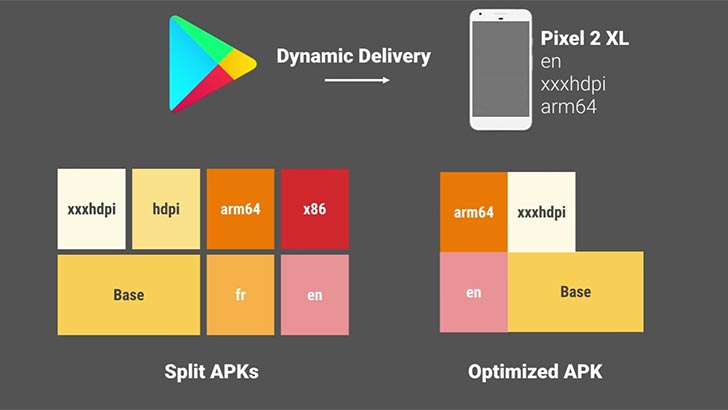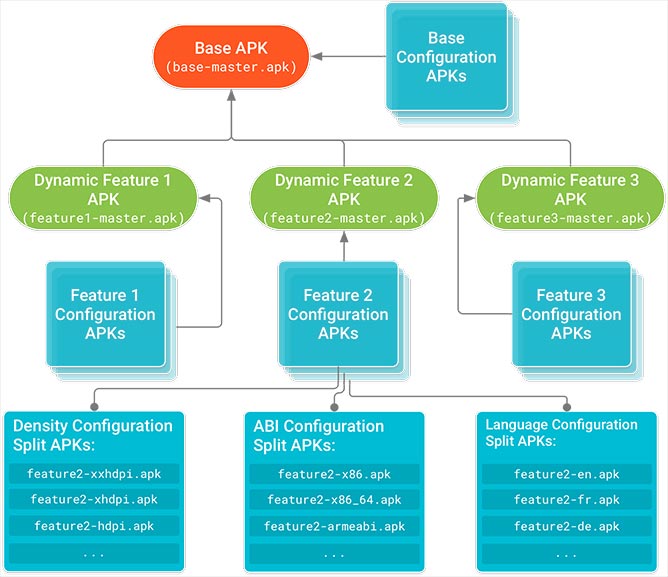
Google is preparing very relevant changes in apk file delivery method from the Play Store. The future is modular downloads, and its name is Dynamic Deliveries. We explain how it will work.
What is the current application download system?
For any user or ordinary user, the method to install an application is very simple. You simply have to look for it in the Play Store and click on Install. Ready, no more is needed. For developersHowever, it is a bit more complicated. They must take into account the variety of devices and systems from which their application can be installed, and adapt the program to each variant. As a result, even though a person only sees one token, behind are multiple apk files that take into account all the possibilities, offering to download the one that is appropriate for each consumer.

Sample multiple apk files.
How the future changes with Dynamic Deliveries and modular downloads
During the Google I/O 2018, the company presented the future changes that will affect the application delivery system. They have called it Dynamic Delivery, which can be translated as Dynamic Deliveries. And what does it consist of? From Google they have taken notes of Project Treble and, basically, they are going to bet on the modular downloads.
The apk files will become Split APKs packages. There will be a base apk with all the central structure and configuration that is essential for the operation of the application. This will be accompanied by other modules that contain specific configurations that adapt to all devices. When the user decides to install an application, the Play Store detects what components you need and offers them to you in a final apk file that is installed on your mobile.
Un benefit A secondary part of this is changing those modules in the background without having to redownload an entire application. If, for example, the language of the phone is changed from Spanish to French, the applications will do the same, and the Play Store It will take care of serving the components to change the language in the background.
Google has also confirmed that, in the future, This system will allow adding new functions much more easily. It is not yet available and will take time to implement, but the idea is as follows: if an instant messaging application wants to add voice messages, it will no longer be necessary to offer a full apk package. It will be enough to offer a module that contains the new functions and applies to what the user has previously downloaded. These modules will be called dynamic feature APK, which translates to Dynamic Function APK. Each of these Dynamic Function APKs can have several modules, so the internal construction of an application could have the structure of the following image:
What do these changes mean for apk files on websites like APK Mirror?
This new system involves a series of problems when it comes to install unknown apps en Android. The code used by Google is open-source, which means that, for example, Amazon you can use it for your store. However, for portals like APK Mirror the changes are more relevant.
With the Dynamic Deliveries, traditional apk files no longer exist. It is not possible to download a package and install it as it could be done until now, since all the functions are distributed in different modules. Although the Base APK works as usual, any function offered through a Dynamic Function APK would be out of scope, unless extra configuration is done via command commands. ADB. This may not be serious for users who mess around the most with their mobile, but it is for the most casual ones.
At the moment, in APK Mirror confirm that they will prohibit the upload of Split APKs to their portal, since it would be counterproductive to offer files that cannot be installed. They are working on new methods to offer apk files in the future when the new system is rolled out, but for now this is the solution. A possible shortcut will be to download apps from mobiles with Android KitKat or lower, since Dynamic Deliveries will be applied from Lollipop. However, this system will only be valid as long as the apps are compatible with old versions.
What changes will the end user see from the Play Store
And all this that it means for the ordinary user? If you are a developer, you will have to offer more data to Google so that it can handle the different components and modules and offer them correctly. At the same time, you can work directly on each function to offer its respective module, without having to worry about compiling many apk files.
If you are just a normal user that you install applications from the Play Store, you will not suffer changes. You will continue searching for apps in the store and pressing the button Install to get hold of them. The only thing that changes is the process that you never see.

